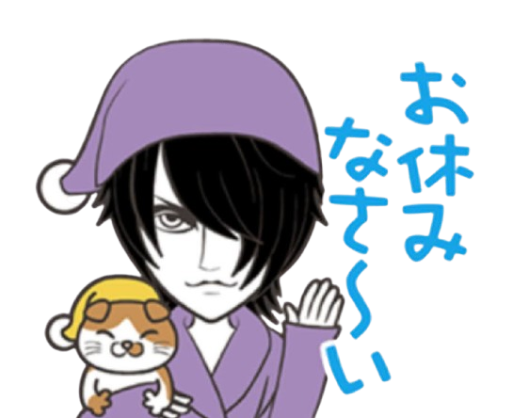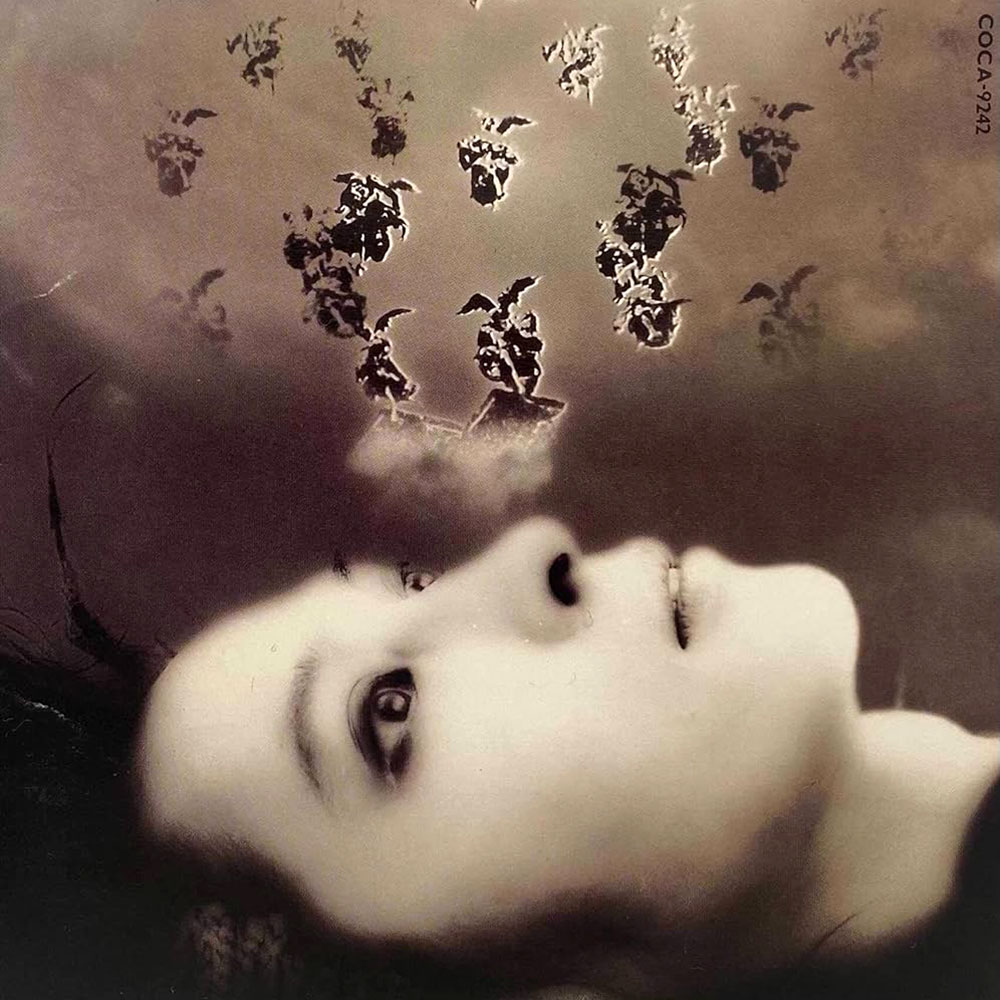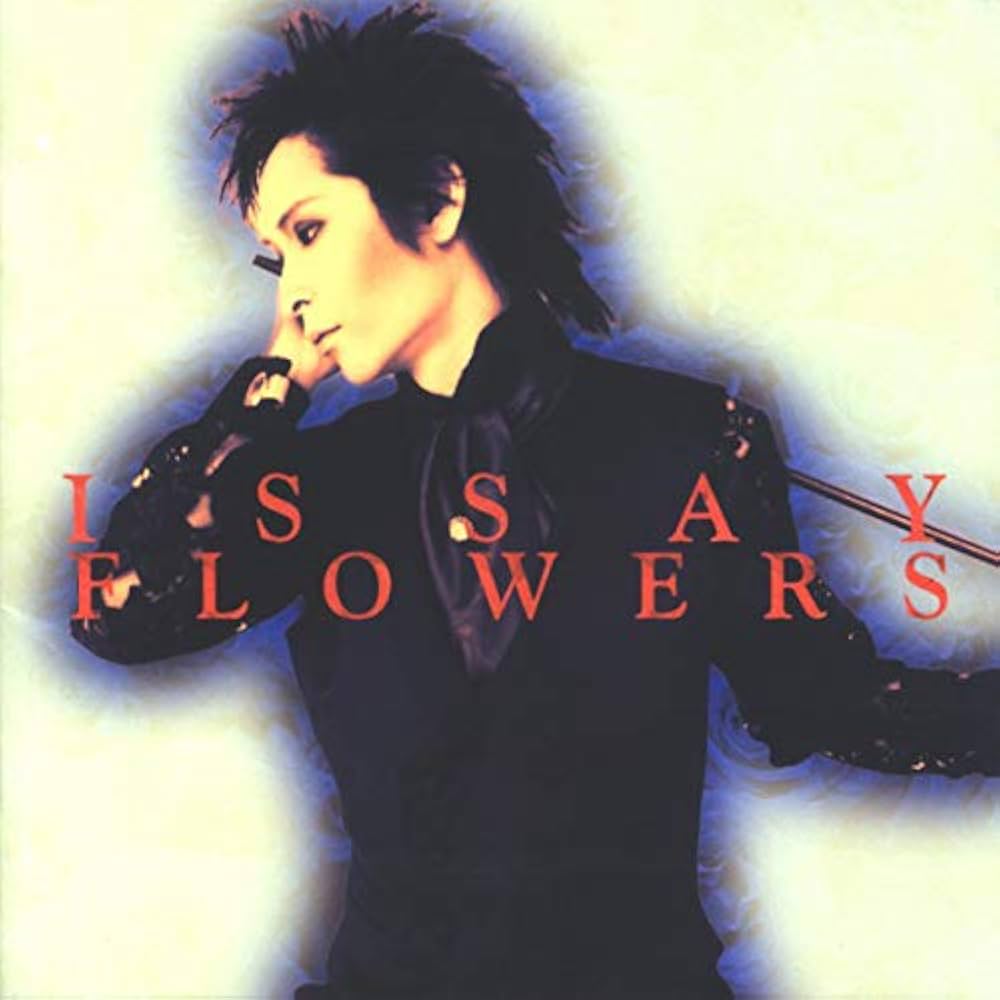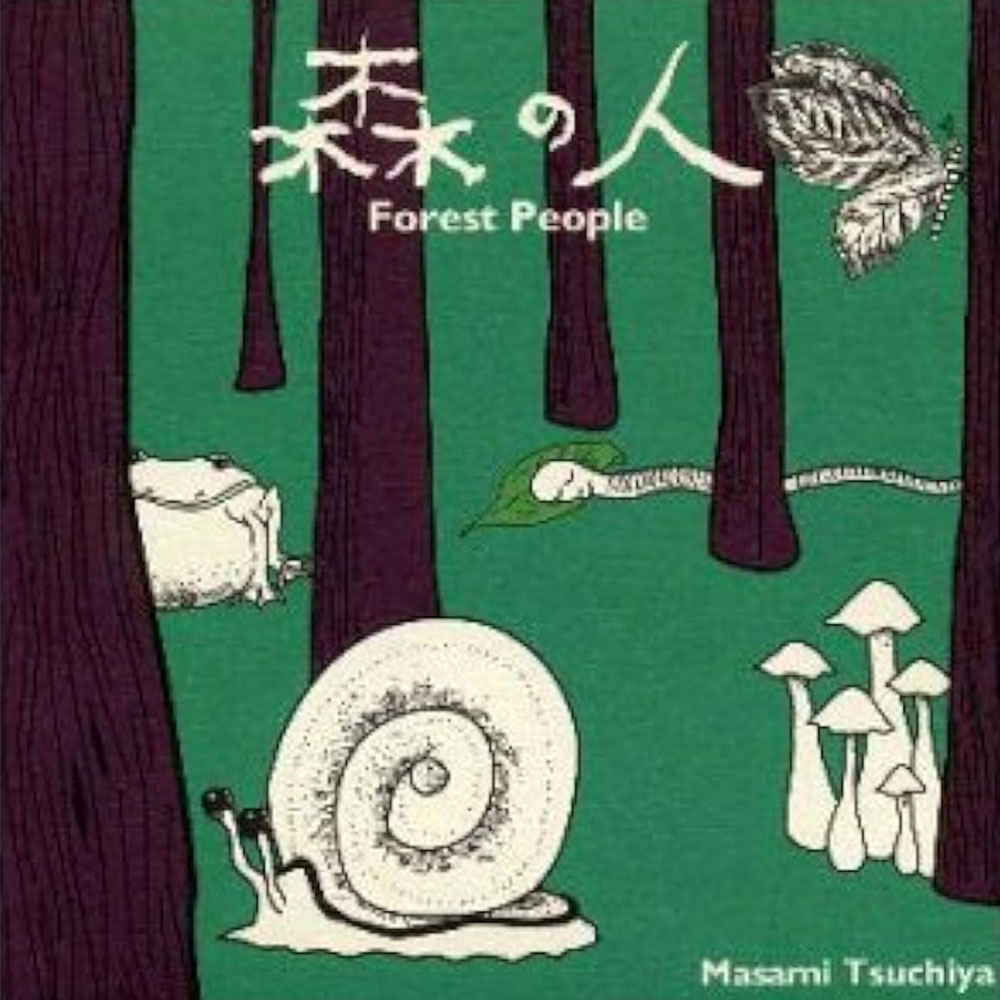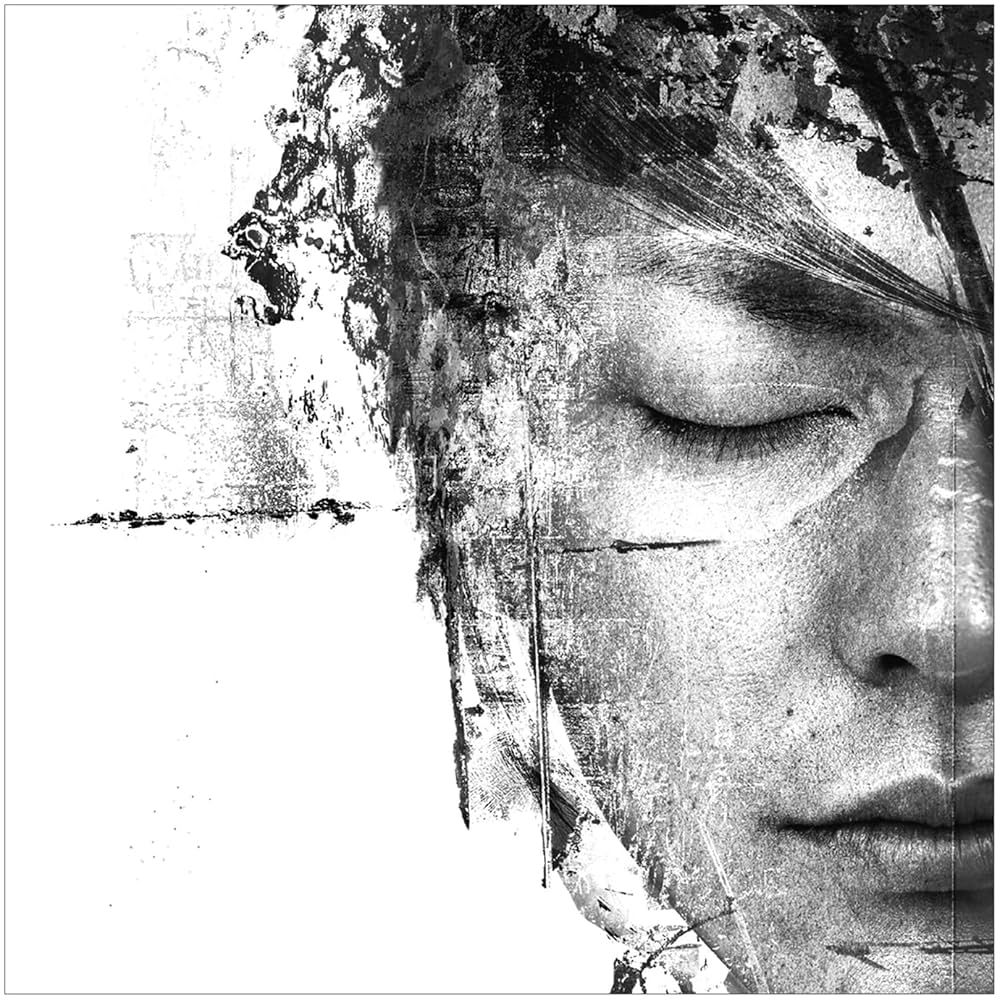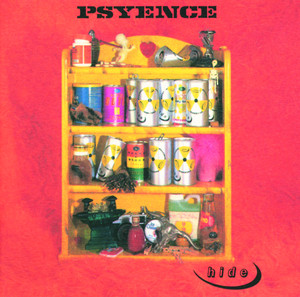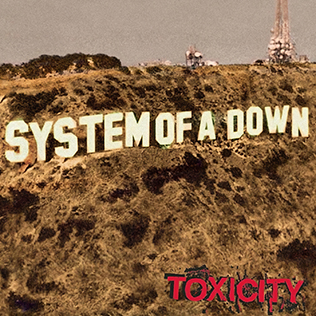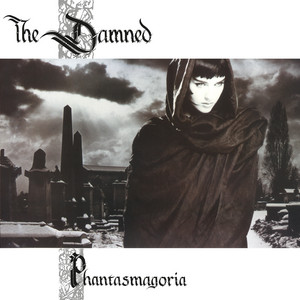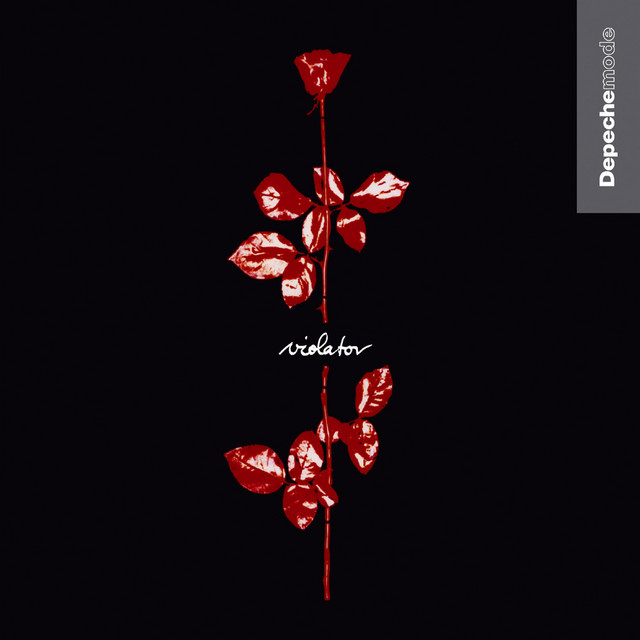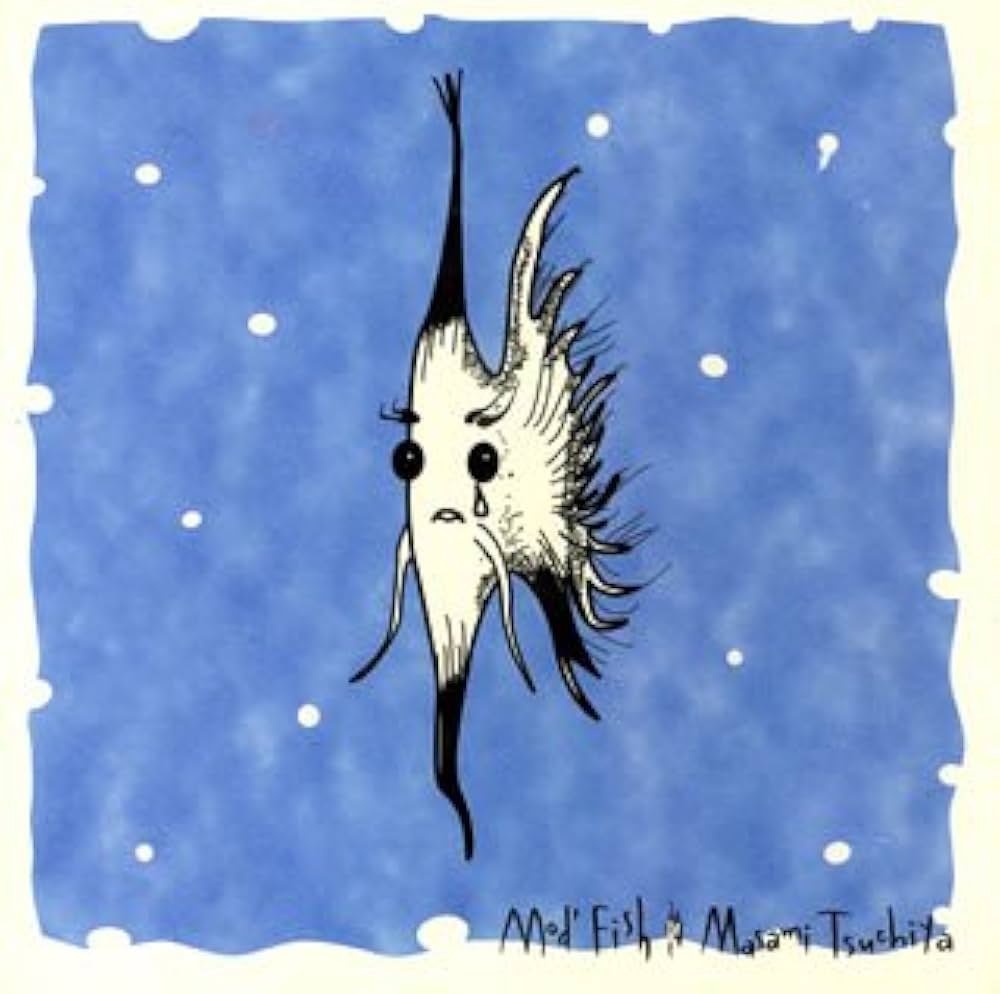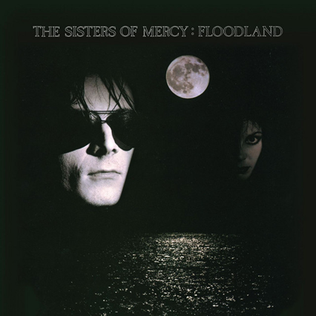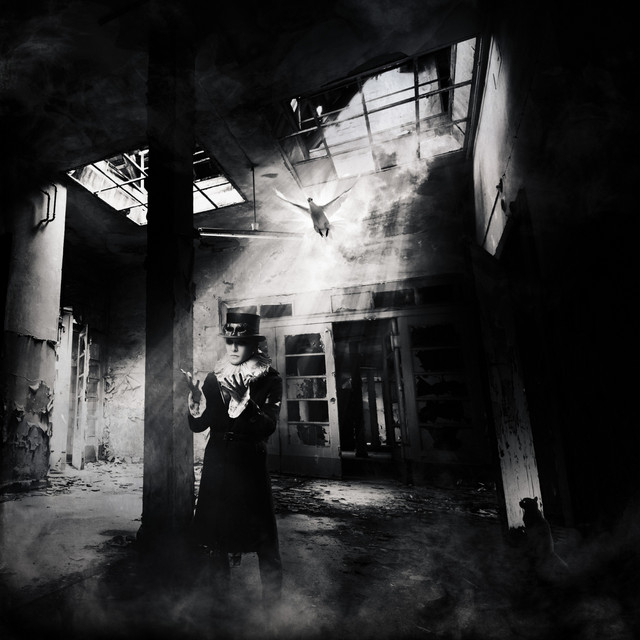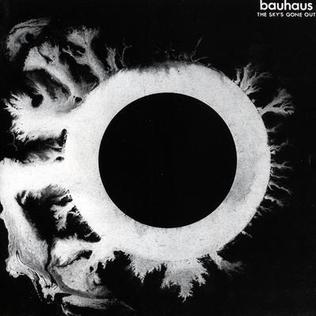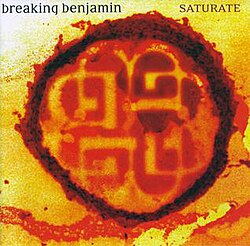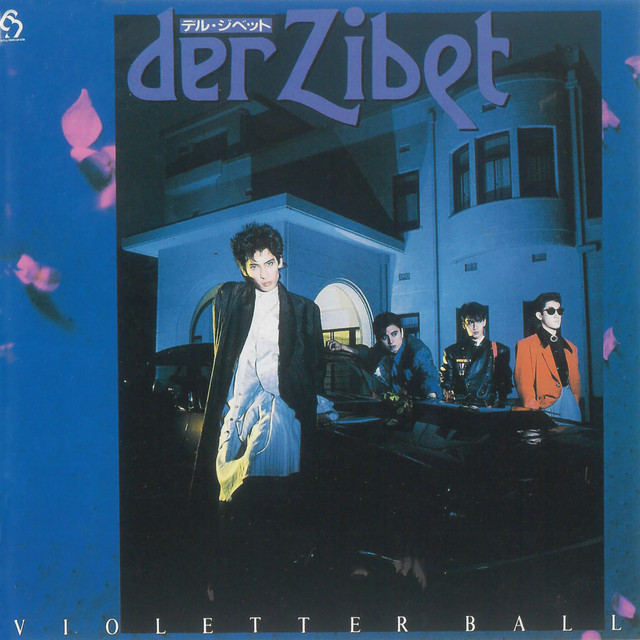Other Media Review
I love wacthing/reading/etc shit so here's me yapping about everything that didn't make it to the super awesome list above. I won't cover anything from super long ago, just recently what I've seen as I've had this edition to my page.
These are not spoiler free!
Poor Things (Film)
Poor things was... something. I feel like the film had INCREDIBLE potential. It was obvious made with passion considering the creativity and "experimental" nature of it (the camerawork, design of literally everything, music, and surrealist elements were amazing), but I feel like it was lackin
It wasn't a bad watch. In fact, I felt incredibly entertained during the entire movie. It was a good movie in the sense that it is unique, well-made, and ACTUALLY entertaining to watch. What rubs me the wrong way is that it seemed to present itself as a super radical, feminist film but lacked anything of actual substance.
I can understand, like others, how some people will hate it and some people will love it. It's a really middle-way type of movie. Like I said, there were incredible aspects to it, but I don't feel moved as a person that has already seen the movie. It didn't have a lasting affect on me.
There were so many missed opportunities throughout the plot, and it felt quite shallow; it even felt pretentious. It's like the movie was trying to protray itself as dramatic and revolutionary but only touched the tip of the iceburg for everything it tried to accomplish.
I know this review is incredibly vague, but this review is just about as moving as the movie itself. It's just nothing that will help you grow or realize anything about... anything. It had appealing elements, but that is all. It felt like no research was done, no point was being made, and no true thought was put into it.
Stranger Things
Stranger Things wasn't a bad show. In fact, it was a great show to watch in the moment. The problem is that it was incredibly redundant.
It started off amazing. In fact, all of the seasons had aspects that were amazing and creative and absolutely thrilling. I fear, however, that there were so many parts of the show that just didn't need to be there. So many loose ends were left loose: I feel like 1/3 of the knots that needed to be tied were actually tied.
On top of that, there was so much wasted potential. All of the lose knots could have been explored and made an AMAZING story. There's also a lot of things that aren't loosed knots but still served no purpose at all? For example, Billy's to-be relationship with Karen? It was incredibly unexpected, creative, and something that I think many people other than myself would have liked to seen explored. It could've made an incredibly critique on something like the way pedophilia is normalized, or the unhappiness of the average mother in a nuclear family, but IT WASN'T!! I understand that the show wasn't political or anything and that "ohhh nononono you have it all wrong it wasnt explored bc that thing got billy!!!!" I DON'T CAREEE!!!!!!! There was so much wasted potential that it's actually infuriating.
It was also repetitive. It was scared to do anything remotely risky. Every season after the first felt useless because you know the what's going to happen. They're going to find out that the world is going to end, decide that they have to do something about it, almost die but never actually die because you might lose money by killing off popular characters, return to their lives as normal, and then repeat the exact same thing next season. That's all. Over and over again. I understand that conflict and solution are vital parts of a plot, but they just kept reusing the exact same idea with one or two more characters over and over again.
Everything just got bigger and bigger and it just felt like those stupid "OH MY GOD IT WAS HIM ALL ALONG!!!!!!!!!!!" shows that use that idea several times in a row. Nothing is special anymore; there's no mystery. The suspensful atmosphere that was there in the first season is nothing but a light dew atop the grass by the fourth. The one time they actually killed off an important character, he was brought back less than an episode later. (And no, Billy does NOT count in my eyes as an important character.)
All in all, there were awesome parts of the show (like Robin's character? Her lesbian rep was the first in FOREVER that felt like it wasn't just there so the company making the show could look "woke." It actually developed Steve's character and was really beautiful to watch such a friendship form). The problem is that so much of the show felt boring and repetitive. I think the only ACTUAL excitment I felt in the fourth season was watching Hopper survive in the gulag.
Helter Skelter (2012 Film)
Helter Skelter was genuinely a really good film. The only reason it didn't make it to my super-awesome-cool list up above is because I was stupid and missed out on all the important points.
I watched it while I was super tired and COMPLETELY FORGOT or misunderstood most of the key points (forgot about the full-body surgery AND didnt realize that the clinic purposefully made the bodies rot).
If not for my stupidity, this film would've been a spectacular watch. In fact, REGARDLESS of my stupidity, it was still a great watch. I definetly reccommend it. While it's not as obvious with some of its points, the comments it makes on sexism and basically all that crazy shit about being a female(-celeberity) in this world; kind of like how The Substance does.
Anyway, watch it. It was amazing. And maybe read the manga, I haven't read it but I heard it's really good (I was blown away when I found out that the movie was a mere live action version to a manga).
Isle of Dogs
Isle of Dogs mastered atmosphere in a way I've never seen before. The animation was stellar and completely over the top, and the way the human characters only said exactly what they needed to vs. the dogs being full of personality and sarcasm complimented each other amazingly. The story was comedic yet emotional and I absolutely loved it. However, I do have some complaints. Maybe I'm just not educated enough on this movie, but I felt like some of it's incredibly well crafted metaphors were either just pointless or too esoteric for me to grasp. The movie seemed chalked-full with metaphors, yet I couldn't put my finger on a single one. Not to mention, why Japan? If the film seemed to be mocking a problem so prevolent in American, made by Americans, why was it set in Japan? There are some little things that also seemed so silly. Why did that girl dog (I can't remember her name) have perfectly groomed and brushed fur at all times when the dogs all looked terrible to eccentuate the desolate nature of the island? One of the characters even pointed it ouot. For a movie that seemed to be one giant critique, I felt like it wasn't self aware at all. It'd say so clearly, "This is bad!" but next thing you know, the movie would seem to mindlessly do the exact same thing it was mocking. I don't know. It was a great movie, but I can't say it's on my top 10 list or anything. It's too bad; like I said: the animation and design was otherworldly and the plot itself was incredibly original and creative. I have a feeling I'm just dumb and not realizing something really, really important, but my feelings remain regardless.
Do Androids Dream of Electric Sheep? (PKD)
The book definitely has its flaws. Its worldbuilding was flat at times, and the whole Racheal Rosen femme fatale was ridiculously sexist. It's hard for me to resonate with and enjoy a book that claims to be depicting what it means to be human or "alive", and then be horrible at depicting humanity. PKD did well at times with the parallels of androids, Rick, and Isadore, but Rachel Rosen as a character was another example of Man Tries to Write Seductress But Only Shows That He Can't Write Women Because He's Too Blinded By His Misogyny. Her character made it hard for me to enjoy a hefty part of the book (not to mention the fact that Rick's enlightenment at his ability to empathize with androids was ONLY BECAUSE HE WAS ATTRACTED TO THEM???). It reminded me a lot of when I read 1984 and couldn't really get past the sexist writing of Julia. These books are GOOD, but everytime their sex drive gets in the way of their writing, it ruins a LOT for me.
The story also felt oddly ambitious. It's a good book, yes, but PKD was trying to convey one idea with a million different examples, even though he didn't seem to pay too much attention to any of them in particular. However, I admit that that feeling might just be my own ignorance.
Those are my main critiques.
However, as I already said, the book WAS good. The line between alive and "not counting as life" is repeatedly shown to be unclear and indeterminable. Isadore mistakes the cat for an electric one, Rick is incredibly apathetic, Resch is mistaken for an android because he's sociopathic, etc. And as everyone else reviewing this book says, the androids are some of the most human and alive characters at all. They may not feel empathy, per se, but they have ambitions, they connect with other androids, they feel angst and pain, and they dream. They dream. The title of the book vividly summarizes the concept that the book is trying to convey (the title might just be my favorite part of the entire book): Do Androids Dream of Electric Sheep? Do they rest with the same childish sleepiness and count sheep, as the old-fashioned gag suggests? Do they participate in this concept that only organic beings are so prone to? But that's not quite the question that the title is asking. In the book, Rick asks if androids dream in the same way that humans idealize things. That is something truly human. If androids really are so similar to humans, do they dream of their future the same way we do? THAT is something so human and so critical that the androids, too, find themselves capable of. They escape because they dream; they read books because they dream. They dream and they fantasize and they cry tears over their dreams, but they don't empathize as people do. I really do like this detail that PKD pointed out; what makes humans truly unique is their ability to empathize. (even though I think what makes us human is the ability to create art). However, if we CAN empathize, why don't we? The "specials" (people whose IQ has deteriorated due to the radioactive dust) and the electrics are seen as inferior, and humans have the ability to empathize with them, but they never do. They are never shown mercy. It's an ironic play on humanity and our priorities. We pride ourselves on something that we don't even use. The fact that people continue to pursue an electric life with dials, destruction, and escape shows that we don't utilize our ability to empathize.
I've seen other people discuss how the story also talks about the line between fiction and reality, and the constant substitutes that humanity is making for itself in the book. The very existence of androids is a substitute with and of itself: the empathy boxes, the dials, Buster Friendly, Mercer, the new planets... it's all a substitute for something that was already there. People could've been happy with nature, but they decided to continue making substitutes. This leans onto the "fiction vs reality" idea: what counts as a substitute and what counts as real? What is genuine? What makes a substitute count? And all back into the android vs human thingy: what makes an android "human-enough" to be "human"? Then back again, do they dream? Do they dream at night, or dream of status and power and social acceptance? They do. Time and time again, they wish to be either human, equal to humans, or accepted by humans. They desire social acceptance. This makes the electric sheep symbol special because owning an animal is a status symbol. Owning a real animal makes people want to accept you. Do androids dream of electric sheep—something, even if it's fake, to make them equal to humans? Or would they dream of electric sheep as a counterpart of themselves? Would an android sheep be more special than a real sheep to them because they can resonate with their artificual make-up, and possibly get them even closer to the ability to empathize? The constant strain on everyone due to this desire to reach something "greater"—something "ideal" only ruins you the closer you get to reaching it. Even after Rick's religious "enlightenment" (using a lot of air quotes right now!!!), he's disappointed that the toad is artificial. We are an insatiable species, as are our copies. Even the androids have the same pretentious nature as we people do in the book. The androids flee to escape slavery, but as soon as the group of androids we see meets a kind man, they immidiently use him without a single thought. This could be an example their "pure lack of empathy", but I think the feeling of superiority they (and by they, I mean Pris) display was on purpose. Isadore, the most inferior of them all, truly is the kindest, most human one of them all.
Some parts of the story have no build-up while others have so many little, insignificant details that I don't feel compelled to look into them. But it WAS a good book, and it's a sci-fi classic for a reason. I actually only read the book because Imai kept writing Buck-Tick songs about it!!!
Before you leave, I want to highlight that I left out a LOT of information. This isn't an analysis, just a review.
1984/Animal Farm by George Orwell
I read animal farm in a couple of mere hours. I'm inly including this review WITH a review of 1984 because 1) his ideas in the two books are very similar and 2) because i waited way too long to write about 1984 and cant remember anything I originally wanted to put in the review.
Orwell has a way of writing that conveys complex ideas by using blunt, simple, and obvious metaphors. His work can be cryptic at times, but so is literally every other piece of literature ever, so I don't consider that a particular drawback.
Animal farm, to me, is an example of how both capitalism AND communism follow the same fundamental rules that will inevitably lead to failure. They have a majority on the bottom and a few at the top. While it was an obvious allegory for communism, I was completely hooked on the fact it was actually about capitalism. AKA they both STINK!!!!
I really don't have much to say. they are great examples of the nature of people and how we perceive and interact with politics and are both, while heavily dramatic and exaggerates, GREAT depictions of humanity in general. They have their flaws, but are overall very good books. There's not much for me to say because these books are extremely obvious on their own; nothing NEEDS to be said because they said it already. Read them, they're very good.
The main idea I got from Animal Farm was that power is unethical because corruption is unethical. We are shown a "good' and "bad" leader from the beginning (Snowball and Napoleon), whom I was told were based after a people's person communist kind of guy and another super-power-loving capitalism (both of which I don't want to care to research), but are shown that corruption happens either way. All the apples and all of the milk went to the pigs from the begining, even when all animals were equal (in theory). Even if, in some magical universe, a good leader would not be corrupt, they will eventually die and their successor will be corrupt, or their successor, or their successor, OR SOMEWHERE DOWN THE LINE. Yes, everything is ephemeral and that is why we should strive to be our best selves as soon as possible, but we should also set goals and systems in place that have our long-term best interest in mind.
What was interesting about 1984 is that it was moreso a demonstration of human nature. It told the tale of how people will always rebel, but not necessarily do it right. Winston didn't have his heart in the right place ever. Even when he confessed to O'Brien and O'Brien asked what lengths he was willing to go to in order to betray the Party, Winston didn't have his heart set in the right place. He said he would, if told, throw acid in a child's face if it was to betray the Party, despite one of the main problems of the Party being that they indoctrinate and harm children. He only moved from one extreme to another. People will rebel, which is good, but rebellion needs to be done right, or else we'll all end up loving Big Brother. It's the same with Animal Farm. We need to find a different answer to the question of, "How can we set up a system of government that gives people the ability and power to live a happy, equal life?" If we don't find the right way, all people will be equal, but some people will be more equal than others.
When the Wind Blows (1986 Film)
When the Wind blows is a refreshingly faithful multi-media adaptation based on the comic book with the same name. It's about an elderly couple just doing what feels right to survive when a nuke hits their country.
I watched this movie with my friend today because he reccommended it to me; it absolutely blew my mind away. The children's-book artstyle was nostalgic enough made you feel for the story automatically, but the sudden stop-motion and real footage scenes woke you up and reminded you that what happened to the couple is a very real thing. It was extremely well done in every way.
The couple's descent as their conditions worsened with radiation poisoning was sickening to watch. The movie is holding people in power responsible for not giving the public the proper resources to survive, as well as for letting a war happen in the first place.
The couple stays hopeful despite their descent and guarenteed death even though there is abundant proof that things are not as well as they seem. All the plants are dead, the sun is covered by a radioactive fog, their house is destroyed, all nearby animals have died, there's nobody nearby to be found, and every resource leading to their house has been cut off. Water, electricity, radio, etc. In the husband's own words, "Everything has gone dead!"
The couple listens to an outdated and contradictory manual to keep themselves alive and only dig their own graves by going about life as normal. They walk outside and expose themselves to the contaminated air (which they were already exposed to for not blocking off their refuge + the windows breaking in) and continute to spend time in the refuge despite the fact that they had a cellar. There were many things they could've done that would've helped them survive, but they didn't because the government provided absolutely no helpful information to the public, except for a warning only 3 minutes before the bomb hit. No information or emergency services were sent out, leaving those who may have survived completely in the dark.
What is so sad about this story is that, again, they could've lived. They're blinded with patriotism and faith in the government, even though the government is exactly why they and everyone in the surronding area has died. The government has completely neglected to provide ANY resources/information to the public, and it was the government that allowed the war to happen in the first place. It was the negligence of the people in power that leads to humanity's end. Their negligence empowers the ignorance of the masses: the title says it all, it is the very wind the couple enjoys that brings their death. That wind carries the radiation and conpromises everything; the very rainwater they collected to drink was carried by the same cloud.
I actually learned of this because my previously mentioned friend said "ohh ___ reminds me of When the Wind Blows!" because I mentioned that I've been listening to Sid Vicious ON THE BEACH by Buck-Tick a lot. This song is a refernce to (according to Cayce, whom I trust with my life for no reason) Einstein on the Beach, an experimental opera that is a reference to On the Beach, a 1957 novel about a group of people in Austrailia awaiting their death as the radiation of a prior nuclear war moves south towards them (I really want to read this book!!). This book is a reference to T.S. Elliot's poem "The Hollow Men" (I think), which says "This is the way the world ends (x3) / Not with a bang, but with a whimper". On the Beach emphasizes this with the "not with a bang" part being about the nuclear war, and the "but with a whimper" part being humanity and all life on Earth left to do nothing but reminisce as they await their death. Sid Vicious ON THE BEACH seems to be depicting the same scenario as the novel. If I'm right, the narrator is outside (probably on the beach), watching the clouds in the radioactive sky brush the winds his way. He is left to do nothing but mourn humanity and curse that we are so selfish and incapable of loving each other, despite love being the one things that will deepen our understanding of life (if that doesn't make sense, you need to immerse yourself in Buck-Tick. "Love is the only thing out there, you know"). I might have misunderstood this entirely, but he pictures the approaching dust as a sort of angelic-like figure of a woman approaching him, embodying humanity by spreading her "love" everywhere she goes, even though her love is only the promise of death.
This isn't even about the movie I watched anymore but it's ok because this is my Buck-Tick fansite and I can do whatever I want. My favorite quote from the song (Cayce's translation) has to be:
We don't learn from experience
No one will save us
On this planet where we just can't get along
And he murmured (could've been "I" as that's what Lola translated it as, Japanese doesn't really have specifying pronouns)
"Chaos will mark our graves"
Wuthering Heights by Emily Brontë
Wuthering Heights was an excellent novel. I honestly would probably enjoy it 10x more if I could find some real analysis on it. The problem I'm having with this book (which is the same that I had with Orwell's books and Do Andriods Dream of Electric Sheep? is that there's no proper analysis out there. With Lolita and Poor Things and random pieces of film and literature, there's plently of extremely in-depth analysis done by people who have researched these things for years on end. I can't consider myself educated on something until I've taken in an acceptable amount of information and can speak on the topic for myself and begin to formulate my own ideas.
One of the main points you'll see mentioned about Wuthering Heights is the duality of nature and polite society. The Heights will be taken, Catherine will be married away, and the wild atmosphere of the Earnshaws eroding with time all seem to point to how civilization will always tame nature and the wilderness (if we let it). We have a natural connection to nature and to be taken from it is to be disregarded. Catherine's illness wasn't just a betrayal of the self; her illness was the embodiment of what the sudden transition from natural to acceptable does to a person, especially women, who have it much harder (Homesickness being considered a legitimate illness at the time also makes Catherine's death all the more emotional). The emphasis on classes is also a symbol of this. The Grange was overral very clean and uptight, as the upper class are expected to be, and the disparity between the servants and rich were apparent. Even in the Heights, Nelly started out as an equal: she was a sort of foster sister to the rest of the children. It was only as she grew—and the equality and peace of Nature was being stripped away—that she grew to be more of a servant than anything. This book seems to be mocking how seriously we take these made up rules (such as how the rich, poor, woman, etc. should behave) and portraying what blind obedience to them does.
That is why forgiveness is so important. Abuse is one of the main factors that erodes everyone, not just the Grange or the Heights. Abuse is so normalized where they are and it only furthers the spread of this plague we call "the expectation to be acceptable." It is forgiveness that will let you thrive. In the end, when the most vengeful character (Healthcliff) falls and Catherine and Hareton fall in love and live peacefully with Nelly while claiming to have the ultimate revenge by being Loving, the peace and comfort of the Heights is restored. It may not be as chaotic and wild as before, but the precense of Nature is still there. In fact, it might even be better, as the pursuit of Love and refusal to seek revenge is the best cure-all. Considering that the couple was an obvious parallel to Catherine and Heathcliff and was what they could've been, this point is very clear.
I quite enjoyed the book. While I'm absolutely sure that I'm missing a significant portion of the book's point, I'm satisfied with what I was able to gather from it. Symbolism aside, the plot was also very interesting. My only complaint actually relies on myself: I'm dissapointed that I rushed through the book and didn't understand half of what it was saying! I would've enjoyed it much more if I wasn't so stressed about getting to the end. It's actually not what I was expecting at all; most people hear that it's a romance, but I was under the impression that it was a gothic novel. It was to an extent, but I invisioned it being more akin to Poe or Lovecraft than... I don't know, maybe Nabokov? I can't say I've ever really read anything like it before, so there's nothing for me to compare it to. Regardless, it was a great read!
The Stepford Wives (1975 Film)
The Stepford Wives was an excellent movie. With most movie adaptations of books, I feel like there's an eerie lack to them. They may be amazing in every way, but you can usually tell by the pace and unique plots of them that they're adaptations. Oftentimes, this leaves me dissapointed and curious: If the movie is this good, imagine how good the book is! Should I even watch this movie if I know the book is probably way better? Although it should make you want to read the book, a truly good movie should never make you want to stop watching it. That is exactly what The Stepford Wives was able to achieve.
Despite being an obvious political statement, the movie was stuck between priortizing the plotline over the politics. That is what X (2022 film; prequel to Pearl) failed to do—the movie wanted to be special and parade a sort of "feminist" plot for obvious marketing purposes, even though the movie didn't have anything unique to say at all. The points were poor, the story was predictable, and the characters and their dynamics often fell flat. That is what The Substance did great: it used its horror themes to extend its political ones. The body horror was used to depict the fear of being "ugly" as a woman and the horror of falling victim—consciously or unconsciously—to the completely barbaric standards we push onto women with every move we make. The Stepford Wives, like The Substance, was able to use its plot to its own advantage. However, what amazed me is that the film still felt like the plot itself was the main focus; they're just amazing at what they do!
The Stepford Wives is a movie about women and their pressures. The men in this movie create robots of their wives that are "perfect" and all the exact same. The original women are (or were) spunky, independent, intelligent women with hobbies and passions and love in their hearts. They have their own opinions about the patriarchy and fashion and the world around them. The women take on feminine and motherly roles not because they're expected to, but because that's what they want to do (whether it be for one reason or another). The men see their wives not as people, but as mere objects. Lesser being meant to clean, cook, serve, and make love. They don't love their wives for their unique personalities or compelling characteristics because they love women who act, talk, breathe, sleep, dance, and do everything as "womanly" as possible. They're not women, they're sex-bots!
Anyway, what I quite liked about this movie is that there isn't much to say. The message was clear and to-the-point. We are never as close to reaching an equal society for men and women, so we ought to pick up the pace. Don't excuse that sexist comment. Don't wear makeup and trendy clothes because someone else wants you to be pretty. Don't do what you "must do because you're a woman and you absolutely must." I would 100% reccommend this movie; even if you're not interested in politics, the plotline (as I stated earlier) was incredible.
The Necrophiliac by Gabrielle Wittkop
Unfornately, I'll actually have to come up with my own ideas for this review because it's too esoteric for me to find any analysis online.
The Necrophiliac is, unsurprisingly, a book about a necrophiliac written in entries as he continuously digs up old graves to sustain his habit. Taking clear inspiration from Lolita (many people said the same, so it's not just me being a Lolita fanboy), the prose is hopelessly endearing. Lucian writes like he lives to love language, similar to Humburt, yet remains a descpicable person. They're two sides of the same coin: connoisseurs of forbidden love and terribly stuck-up. The Necrophiliac doesn't have much of a plot because the majority of the story is about learning of Lucian's mindset. He's not describing much of his surroundings, nobody does: he is describing his thoughts.
I find books like these to be incredibly intertaining. Not only do I love melancholic, revolutionary classics, but these all have a point to make: maybe The Necrophiliac isn't as much of a masterpiece as other works out there, but it truly was amazing. I really think it kind of stands for the same thing as Lolita. Outcasts—sexual deviants in these cases, being obvious and common examples—are people, too; still, they remain monsters among the masses. When confronted with their own wrongdoings, few enlighten themselves and take accountability. More often than not, they live akin to Humburt and Lucian. Denial and the refusal to be blatantly wrong prompts a downward spiral in people's heads. They silently live believing themselves to be superior to their peers as their terrible habits only fester.
Lucian very well could be a metaphor for something else, but being the Lolita fanatic I am, this is what I gathered from my read. I actually saw somebody say that Lucian is a wonderful example of someone unable to bond with others unless in complete control; this explains his lonesomeness, why the siblings' deaths were so profound to him, why he was enraged at the girl puking on him, etc. I suppose the beauty of art is that it is what the reader interprets that matters.
I quite enjoyed this book; it took me but a mere few hours to read start-to-finish. I'd certainly reccommend it to those who have a passion for melancholic and macabre literature that prioritzes morals and mental deterioration over some boring plot.
BoJack Horseman
I finished BoJack Horseman awhile ago but wasn't quite able to find to time to write of it. By now, I've already forgotten an incredible amount of my thoughts, but I want to at least write something.
I enjoyed BoJack Horseman, but I found most fans really seemed to exxagerate just how good it was. Yes, the later seasons were definetly unique and honorable, but I wouldn't call them "revolutionary." The show follows an old anthropomorphic horse who wallows in his saddness all day over his regrets. He is a famous and rich actor, although his career went downhill after the sitcom Horsin' Around ended. It's a show about people and how none of us are really "bad" or "good". We all just exist. BoJack is a man who wants to be better but only ever seems to mess things up. I can't put it into words, but he's kind of the "hurt people hurt people" saying. He's went through some bad shit, and always causes trouble for people even though he never meant to.
I did enjoy the later seasons a lot. The characters developed well and it became easy to get attatched to them despite their immoral tendencies. Overall, it is a good show and it's worth watching. Despite that, I can't say it was any masterpiece. The first season (or first several) were so crude and confused with their direction. I know the show was still finding itself, but I don't really care...? The beginning felt like it was just trying really hard to be "one of those adult shows." You really have to just grit your teeth and get through it; I'm happy to say that it's definetly worth getting past so you can reach later seasons, but again, I've seen better.
For what it's worth, BoJack Horseman was realistic. It tackled real problems that victims of trauma tend to endure, as well as how those people spiral and often end up becoming the problem. There were all sorts of little themes I enjoyed watching it depict. At the end of the day, I would suggest people to watch it. There are better shows, but that doesn't negate the substance in this one.
Girl, Interurrupted (Film)
I really enjoyed Girl, Interrupted. It wasn't exactly a meaningful movie, but it was incredibly well done. I haven't read the book and I don't plan to; since it's only a memoire and doesn't follow a plotline, it's of no use for me to compare the two.
Girl, Interrupted is a 1999 film "adaptation" of a book by Susanna Kaysen. It's not much of a story, but a series of entries about her time in a mental institution inthe '60s. It inspired the movie more than guided it. The movie was a great depiction of women, mental illness, and relationships. If you've ever been a young, ill, feminine-adjacent person, this movie probably hit pretty deep.
The story follows a group of women in the ward and their experiences. It talks less about how they got there and moreso how they're treated at the hospital. At the end of the day, it's not about their backstories: it's about how they're percieved once deemed "ill." All of the characters go through different types of breakdowns and have unique personalities, but they're all realistic. While they're technically diagnosed with things, something the movie highlights is how women were over-diagnosed in the '60s. Due to gender sterotypes, it's easier to see women is deranged or needing something about them fixed. Of course, these women were sick, but they were not freaks. They were all just hurt people around other hurt people, undergoing obsolete forms of treatment and few very rarely "healing." The movie talks about the ability to "get better," and how you never actually are better, or maybe you were never sick, but you do see progress. You work on yourself and you get out. There will be mishaps and misunderstandings along the way, but there's always a light at the end of the tunnel if you're there to see it.
I really enjoyed how hurt girls were protrayed. Most movies struggle to realistically depict traumatized women, but for the most part, this movie did really well. Some things were over the top (Lisa's personality was the only thing terribly fantastical; no women actually have that pompous, overly confident attitude), but the movie as a whole did well. I really enjoyed the bit with Daisy and her suicide. Her story was heart breaking, but it did serve a lesson. Many people fall into the same fate as hers, but we can take the role of Susanne and move forward: I found her quote about death fascinating: "When you don't want to feel, death can seem like a dream. But seeing death—really seeing death—makes dreaming about it fucking ridiculous." She says this, being a person who attempted suicide, after walking in on Daisy had hanged herself. I understand that some things were smoothed over, but I really think this movie did a great job at showing different kinds of people will different kinds of trauma and how they react to/learn from each other
Brokeback Mountain (Film)
Brokeback Mountain was beautiful. I was first drawn in by the slow and detail-oriented style of filming; the first quarter or so of the movie was just... them all existing. It evokes a sense a realism: life is slow, bit by bit.
Next, I loved the setting. As many people do today, I long for a more free life. Stories of people leaving everything behind to travel west and experience the wild mountains are absolutely fascinating. And then came Jack and Ennis' story.
Unlike many queer stories, Brokeback Mountain didn't feel like your average "forbidden gay romance!!!" story. It was about two men—men you'd see in a bar, home, or at work: real men—who fell in love on an isolated trip in the mountains. Their heavenly time spent on that mountain that they would never get again is something I think many viewers can really resonate with.
The way the viwer (or maybe just me) enjoys their time in the mountains makes you really feel for them and understand their pain when they can't anymore. You feel their frustration and anguish. We all know what it's like to desperately yearn for someone's company in some way, shape, or form; only to be met with a dead end.
I would've been satisfied if they just married and moved onto a ranch where they lived out their life. In fact, I think I would've loved that ending. But I know that Jack's death is what gave the movie a point. You feel Ennis' regret when he hears of Jack—you wish FOR him. You wish they moved away together. You wish they didn't have to see each other in passing and ruin each other's personal life.
Brokeback Mountain is realistic, and that's what makes the movie hit so deep. It makes you weigh your decisions and values: in the short run, we may think one or another thing is best. However, when the cracks start to show, you ought to take the hint. What hurts is that so many people end up like Ennis and Jack did: wasted away, full of regret, or just dead too soon with hardly anything accomplished. Jack wanted the best for them, but Ennis' couldn't choose. He wanted his family, but he still chose to see Jack. That's why his marriage fell apart—even so, he didn't take the opportunity to move out because he didn't want to leave his girls.
Even though the movie makes you think about what life was like for queer people in the '60s, the point remains relevant regardless. Things get hard, but it's best to suck it up through the hard bits compared to living too easy and watching the years pass by with nothing done. Take risks. Die happy. Spend your life doing what you really want. That includes your peers too—don't just consider yourself. Be there.
I'm not very good at talking about things, so I suggest you go watch the movie yourself. It was incredible. Go live like Ennis and Jack should've.
What's Eating Gilbert Grape (Film)
What's Eating Gilbert Grape is a simple yet eye-catching movie about what it's like to live in a struggling household in the middle of nowhere. It follows Gilbert, a young man, tasked with taking a good deal care of his disabled brother, obese mother, and helpful siblings.
There's not much that I have to say. Words are great for communication, but I've found they often render themselves obsolete when the feelings conveyed are so universally understood despite their complexities. I'm not going to try to illuminate anyone: words oftentimes don't do real ideas any justice. They're just the best way we have to communicate. Watch this movie, it's a goodie.
If you want some more words to be spoken, read this article. I love bloggers.
What's Eating Gilbert Grape (1993) - Can't Explain Blog
The Cartographer Wasps and the Anarchist Bees (ELY)
I recently read a short story called “The Cartographer Wasps and the Anarchist Bees.” It wasn’t much, but I thought it’d be worth writing about. I enjoyed how some people who have read the story describe the wasps as a symbol the cycle of violence as well as European colonialism (which was definitely not caused because they were oppressed). I certainly saw them as colonizers more than anything; they were extremely cultured and had, as a civilization, their own sets of customs, values, and language. They were much like Europe, as in they were incredibly advanced and nuanced in art and intellectualism, but this doesn’t make them good. They took advantage of their advancements and used it to enslave the bees. They invaded the bee hive and gave them no choice but to obey, even bringing up young bees as their own. This felt awfully representative of Americans trying to “kill the savage” out of Native Americans for so long.
I appreciate the message of learning from those who came before us: everything we’ve thought has been thought before, everything we’ve done has been done before… Nothing is original. There is no greater way to learn about something than learn of its history. There is something so precious about honoring those from the past. The anarchist bees died off, and the monarchal bees, newly freed, decided to leran from them. They wrote of their ideals for the future. The story felt like it was displaying cycle: the cycle of violence, how civilizations merge, how oppressed people will arise and speak out, how rebellions will come and go again. History repeats itself. Humans are all the same, and therei s something precious to that. Evil will corrupt and take over, but good will rpevail. And this will continue to repeat, indefinetly, infinitely, momentously.
The ideas felt shallow at times, and such a short story isn’t really given the chance to explore anything in depth, but it was a good read nonetheless. If you enjoyed Animal Farm, I would take some time to read this, for pleasure’s sake.
A Child Called It by Dave Pelzer
A week or two ago, I read A Child Called It. I certainly don't have much to say ('tis the price of waiting too long to write), yet I want to write some sort of log documenting the fact that I read it at all. It was a unique book. I honestly feel bad writing praise/criticisms because these types of accounts just weren't exactly written with artistry in mind.
I read A Child Called It because I've been wanting to read more nonfiction. Fiction is beautiful, but I've recently had a thirst for knowledge as a whole. I think reading books that were published to make an informative point rather than tell a captivating story is important and telling. I think that our tendency as people to only be able to consume entertaining media is a problem, so I'm trying to tackle it within myself. Surprisingly, A Child Called It was presented as a narrative.
It follows David, the victim, in his youth. He tells his day-to-day life from the first-person. It doesn't necessarily follow a plot, but his story is coherent and feels storylike. It was very simple and easy to read. I think what surprised me the most about the novel was how detached and distant David sounded when telling his story. Usually, abuse victims are overflowing with emotion; he did mention at times how he felt, but it wasn't as impactful as I expected it to be. Not to mention, his descriptions of his feelings were rare: usually, he described only what happened to him.
It's definitely worth the read. It's very, very short. Me and the person who recommended it to me can both proudly state that it took a matter of hours to read, all in the same day. David's story is an enlightening account of abuse from an innocent child, like all child abuse cases. His narrative attempts to spread awareness and educate people on the reality of child abuse. I'm sure this book was much more impactful at the time of its release, considering child abuse was much more taboo back then. It helps to remember that he experienced this in the 70s, too.
4 Great Movies I Forgot to Write About
I have a very, very dear friend with impeccable taste regarding cinema, yet I never actually got around to writing about any of the films I watched that he recommended me. Since his suggestions were divine in craft, I thought they deserved at least an honorable mention. Rather than writing full-fledged reviews for each movie, I've written a short paragraph for each. Every single one was a worthy investment of my time: I'd dare say they'd be worthy of yours, too.
The Grand Budapest Hotel (2014)
The Grand Budapest Hotel was a breath of fresh air. Everything about this movie felt like it was placed with meticulous care. I don't think I can even begin to speak of this movie. The characters were charming and endearing, the plot was extremely engaging and unique, and the symbolism was otherworldly. I'm not sure I've ever seen another film so jam-packed with information; I can't even begin to take it all apart. Please to God, watch this movie. It was masterfully crafted. I honestly don't think I could coherently explain anything. If you want a summary, look elsewhere: but please do watch this.
The Lighthouse (2019)
This is another film filled to the brim with esoteric references and analogies. The story ties you down and keeps you there: it follows two isolated lighthouse keepers on a lonesome island. This movie is one of the most ambitious ones I've ever seen, filmed in black-and-white and incredibly unreliable. It tries to trick you and leaves what actually happens ambiguous—you, as the viewer, are left just as in the dark as the protagonist. Is this movie about seclusion? Identity? Religion? Morale? I'm fond of the take that it was a metaphor for homosexuality, but take it with a grain of salt: that's what the film seems to want you to do. Come to your own conclusions and succumb to the art you love, not the answers of those equally as confused as you.
Phantom of the Paradise (1974)
Phantom of the Paradise was a lovely little musical-esque movie I'd stumbled across a good while ago. The movie had a youthful feeling to it, full of passion and effort. I wouldn't consider it a life-changing watch, but a very fun one for anyone interested in film or music. The story is about a passionate musician who gets tricked at the greedy hands of a famous producer: after getting played, the musician sets out for revenge.
At times, the movie's low budget made it almost hard to focus on the story itself. It felt rushed, surreal, and nonsensical at times, but I could enjoy it overall. Like many others, I believe the movie's flaws aren't quite notable: the film itself was a delightful "proof of concept" kind of movie. It felt similar to walking into a real theatre and seeing young, ambitious, headstrong, and lively young artists full of hope, dreams, and hard work. None of the weaknesses in this movie are worth mentioning because it was conducted with care and love. Perhaps the acting felt weak at times; the story, short; and the camerawork, poor; but its flaws put it together. It made the movie admirable and cute.
Electric Dreams (1984)
Similar to the aforementioned Phantom of the Paradise, Electric Dreams is a Phantom of the Paradise parody (although much less obvious). This is one of the most delightful little movies I've ever watched, and the theme still gets stuck in my head frequently. It's about a young man who buys a computer and his new neighbor, a woman who loves music and plays the cello. Champagne spills onto the computer, gifting it sentience. The computer becomes infatuated with the neighbor, but our protagonist hesitates to let her know of him. The computer—Edgar—is a winsome character, and I believe most people agree when I say he deserved more than what he got. The story was adorable, although a little sad to think about. This was the first of my friend's recommendations that I watched, and I was pleasantly surprised.
Elvira: Mistress of the Dark (1988 Film)
Elvira's signature Halloween classic was an absolute joy to watch. Considering how popular she seemed to be, I'm surprised that I didn't hear of her until last year. This movie was a tongue-in-cheek take on "bad horror movies", and I enjoyed every second of it. It was simple and straight-forward, and it never let you forget just what it was about: Elvira! Our star spent every second of her presence throwing witty jokes and making her way out of silly situations. It may have been no revolutionary film, but there's something charming about watching lighthearted movies.
This movie was actually made proceeding Elvira's Movie Macabre, a horror television program. I think some people just hearing about the movie (such as myself) are none the wiser to the fact that Elvira was a character played by Cassandra Peterson in the real TV program, commenting on silly, low-budget horror movies. I think this movie was worth a watch—although I do tend to say that for every movie.
Stand by Me (1986)
Subtlety is something that many artists of our time have lost. The glance of a friend. The drop of dew. The furrow of someone's brow. The world is made much less of dramatic events, but majorly simple, daily life. Everything comes and goes. I really enjoyed that this movie seemed to capture that feeling.
Stand by Me wasn't daunting, or obvious, or over-the-top... Stand by Me was simple, yet beautiful. In fact, its simplicity is exactly what made it so charming. Stand by Me is the story of being young; you're only young once. There's nothing like being fresh out of elementary school and doing stupid, dangerous stuff with your friends. It's those reckless, rebellious moments that mean the most. The protagonist says it himself: "I never had any friends later on like the ones I had when I was twelve. Jesus, does anyone?" It's about being young and finding your way in the world, being tasked with handling all the horrible shit in your family even though you're not even in high school. You're at the age where you know what all these terrible things are, and you have deal with them, but you don't quite understand them yet. All you can do is keep moving one foot in front of the other and running off to play whenever you can.
This movie is a classic for a reason. Watch it for the sake of being well-versed, if nothing else. Maybe let this remind you that softness takes artistry.
Forrest Gump (Film)
Over the years, there are a lot of thing you'll notice that people speak of with a general acceptance that everyone understands. Movies are one of these things. They'll say, "That one was extraordinary", and the other will nod. A passive little smile will carve its way onto both of their faces, leaving a sharp crevice on the ends of their mouths. Forrest Gump was always one of these movies to me: everyone seems to know it and have shared a quick quip regarding it, but I've never seen anyone speak of it. Oddly enough, now that I've watched it, I couldn't tell you why.
Everything in this movie was so beautifully woven together. It tackles life as a whole, and how things tend keep flowing, whether or not the current changes direction. Life goes on. I think this movie beautifully demonstrates one of Dostoyevsky's more commonplace quotes: "How could you live and have no story to tell?" We find ourselves continuing life out of habit, if not impulse. We run into trouble. We meet great people. We change lives. We do things because they happen. Sometimes there are greater meanings, but more often than not, there tends not to be. People run in their own lane. I adored how the cycle was very obviously continuing full circle, with Gump's son reliving his same experiences. We are all connected by the same collective events that bind us humans together. I think Gump experiencing all sorts of global events was a perfect example of how life will happen regardless. Things just happen. His simplistic way of viewing things said it loud and clear for everyone to understand; time continues to flow and more events will come. I think there's actually an art to the way Gump perceives, but doesn't take sides (in regards to the American political situation he observed). Neutrality is often painted as a Godsend when it's really a train leading to tragedy, but I like his indifference, if not cluelessness, to the political atmosphere surrounding him. He saw things rather objectively. Again, our world is chaotic and ridiculous, full of complex little threads all tangling together. They will tangle no matter how you choose to live. There were so many metaphors in this movie that I'm not even willing to start talking about (The parallels were executed with such tear-jerking precision!), so onto the next topic!
My only real complaint about this movie was the hollowness of Jenny's character. She felt like nothing more than a concept. A traumatized girl who grows up and waits too long is a overused trope. Troubled women are by no means a spectacular sight in cinema, yet her character was no less a disappointment than any of the others. I understand her role in the movie, but she could've easily been more fleshed out. If she mattered so much, why not put some more care into her? Is Gump's film really no exception to how, in media, female characters will be written to be women before they're every written to be people? What pissed me off is that Jenny was clearly no exception to the overarching rule in cinema that a woman's worth is determined by an arbitrary man's desire for her, whether he means well or not. Can you imagine Forrest as a woman? Can you image her staring at John, yearning for him her whole life? Not in a manner of being saved or one where her longing is the most defining trait of hers, but a looming wish that lingers in the back of her mind as she goes through with life? And John, although he doesn't want to harm Flora, can't seem to help but keep latching onto his nomadic lifestyle, adding fuel to the fire with every trip. The story feels like it would be completely different, would it not?
Anyway, please watch Forrest Gump. It was life-changing.
Smiling Friends
This doesn't really feel like the kind of show you write a review for, but I've decided to write one for the sake of documentation nontheless. Smiling Friends was an incredibly heartwarming comedy.
Very rarely do I find myself completely entertained with art that wasn't made with philosophical undertones, but this show was simply good enough to keep me there anyway. These are the kinds of shows that give me hope for modern filmmaking. The humor in Smiling Friends was like no other, relying on the realistic voice actors chucking their conversations unto the cartoony characters. The animation is creative and unique, keeping viewers engaged but within reason. Overall, it was very well done. You can tell that the writers made it with passion. It's honestly such a weird little show that I often forget how big it is.
I was very, very pleased with this show, but I do have one complaint: sexism. Smiling Friends is notorious for its outrageous characters and their ridiculous designs. But so many female characters don't have anything put into them: they're drawn like normal, pretty girls, and their whole character relies on the fact that they're pretty. They have no personality outside of pushing the plot forward (due to being a love interest of sorts). That's what's even worse; all these girls in question act as wives, girlfriends, or crushes. That's ALL. I'm not saying they need to be incredibly well written, I'm saying that the show is betraying every pillar it lies upon by giving them absolutely nothing. No humor, no personality, no silly design, nothing. Glep's wife, Charlie's girlfriend, Jennifer, and that waitress all fall victim to this. If you're going to write a character, do it right. They have no problem writing fun, comedic male characters, but hardly have any female ones! It's incredibly telling.
Anyway, my concerns are very light compared to the my love. The episodes are incredily short, standing at 11 minutes, so it takes no time whatsoever to invest in. This show is definetly worth your time.
I Have No Mouth, and I Must Scream (Ellison)
For years, people have been telling me to read this story. I've heard tremendous things about the horror it instills in its readers. To my disappointment, that feeling completely escaped me.
The premise had incredible potential. A group of humans stranded by an omnipotent supercomputer, destined to be tortured for eternity, is an equisite plotline. Unfortunately, I felt like it was very poorly written. The story tried too hard to explore "horrors beyond human comprehension." Extremely large numbers, such as infinity, have a lot of substance that can be utilized in literature, but only if done right. Adding more meaninglessly large numbers doesn't further a story at all, and that's what I Have No Mouth, and I Must Scream felt like. The author kept pushing how they'd struggle for eternity, how they couldn't even understand one billionth of AM's hate, how they had been corrupted infinitely... it all just felt so meaningless. A good writer knows that little things hurt a lot more. These big things can make a good story, they just didn't.
I'm not saying that the story was terrible, simply that this one thing was very overdone and ruined the whole thing for me. On top of that, the characters were terribly written. The female character, Ellen, aggravated me so much. In this story, there are only 5 humans left on Earth. Ellen is the only girl. Her only personality trait was being a slut. The main character said she regularly pleasured them all, but she only really cared about one of the characters because he was her favorite to do so with. Her love was hollow and purely sexual, and almost every sentence with her name in it was about her relationship with sex (and the fact that she was an entirely shallow harlot). It was grotesque. Before they were taken by AM, the characters were described as being from all sorts of different backgrounds. The men were characterized by the loss of their careers and ambitions, while the only thing said about her was that she was a pure, gentle virgin before all of this. Her womanhood was confined solely to her sexuality. This rendered me completely unable to enjoy the story. (And this is a very small factor, but the author also insisted on giving her a skirt. The simplicity of her femininity irritates me to no end.)
I speak very highly of most things I review here, but this story was just a disappointment. It was a great idea, but Ellison was not the person who should have written this. I would not recommend this to anyone if not for its literary significance. The prose barely excused the artistic laziness, and even that was hardly notable.
The Princess Bride (1987)
I watched The Princess Bride at my friend’s request, my interest piqued after he called it “a classic.” When people write reviews, they do so as if their opinion is objective: saying one thing is bad and another is good seems oddly definite. Such behavior always left a bad taste in my mouth, for art is given life through experience. It is only your certain collimation of experiences that has led you to make art truly unique to yourself. Likewise (although many cover their ears for this part), it is only through your personal experiences that you can feel art. One of my closest and most beloved friends has completely opposite tastes and experiences from me. Whenever I let myself fall into something he enjoys, I either find myself loving it lots or completely at odds with it. A younger version of me would’ve called these pieces “bad,” but I’ve grown to learn that we all just have vastly different tastes. Those differences are what give meaning to everything, and I’ve come to accept that. This is one of those movies in question that I didn’t care for, yet have no particular complaints (indifference is too often confused with dislike). The movie was ironic and satirical, yet coupled with an unashamed plot of sincerity and feeling, lightly reminding viewers to value their emotions before technicalities. (Italian Futurism remains a wonderful example of this). A classic for some, but an apathetic experience for the rest. I am certainly the ladder.
An Occurance at Owl Creek Bridge (Ambrose Bierce)
Perhaps I’ve missed something great, but my opinion of An Occurrence at Owl Creek Bridge stands contrary to most. As everyone says, Bierce’s prose is lovely. He writes with a swift diversity in his vocabulary that ushers the reader the most fantastical ends of their imagination. However, his ability to tell a story fails his ability to write beautifully. The story was good, but only good. Harsh as I may be, I felt he bounced around a little too much. Again—lovely story, but it stops at that. Calling the man’s lynching a mere “occurrence,” Farquhar’s aimless wandering in his dreamy state, the appalling turn of events at the end… it was all striking, but felt more like a proof of concept than anything else. Although I wouldn’t particularly recommend this to anyone, it is an American classic, and one very well done. Not life-changing, but certainly memorable.
Iron Lung (Film)
Iron Lung was a surprisingly good movie. Most films naturally tend ot be much more creative when based after something else: this is one of those cases. Based after a game (of which I’ve not played), Markiplier not only directed, but funded, wrote, and starred in this movie. Holy crap. Becoming rich enough to support your artistic dreams is everyone’s fantasy, and it’s lovely to watch someone do so. He didn’t aspire to make the world’s best movie—it was a passion project, and that is all. At that, it absolutely excelled. My main critique is that this movie was made all too much “for fans”; the story is completely inexplicable without prerequisite context. I had to ask two of my Markiplier-fan friends for help understanding what on Earth happened. Upon hearing exposition of the story, anyone could say that this movie would’ve been quadruple as good with that bit of story woven in, just enough so that viewers could at least understand. I understand this was made by a fan for fans, but this isn’t just any old indie film: this film reached the depths of small towns all over the world, where a significant portion (dare I say even half) of the viewers simply heard of a good movie coming out and wanted to see it, never even thinking to watch the game/playthroughts; after all, wouldn’t a movie tell you the story that you need to know? Unfortunately not. The movie tried too hard to take advantage of confusion, treating us watchers as Simon himself. We don’t quite know what’s real and what’s not, and in some scenes (like that crazy one where he emerges from the blood), this was done better than most movies. For the most part, however, the confusion was terribly overdone, only adding to the loss of experience. Confusion only works in certain scenarios. With no context whatsoever, confusion is barely anything notable. Other than some minor complaints, this movie was definitely worth your watch, although the experience is only truly memorable if you’re a fan of the game.
Little Blonde Bitch by Austin Antonio Gomes
This book was exactly what I hoped it wouldn’t be: the epitome of a white man’s pretentiousness and prose, blending together like sweet fruit. The writing was, at first glance, beautiful; it flowed like Spring water in a creek. Unfortunately, at second glance, this idea quickly fell. It felt like the author wanted so badly to have his book stamped with Nabokov's or Wittkop’s name, yet he did everything in his power to incorporate modern slang into such old-fashioned, elegant vocabulary. It backfired and ended up making both look silly. That’s just the writing, however. My real problem is with the artistic substance and content.
I got excited at the first sight of this book. Scouring the Internet Archive as I often do, I found this posted just a couple weeks ago under the tag ’Lolita.’ I am a very, very big fan of older literature that explores sexual deviations through narcissistic narrators that were written by wise, old authors (again, Lolita and The Necrophiliac are my favorite books). Reading the first paragraph or so, I was struck with a sense of excitement. Anticipation filled me to the brim. I looked a little farther into the author, as books with such styles of writing are typically very old and I would be interested in learning about the author. It seemed, interestingly, like this was just written by some random dude who was advertising himself all across the internet. Such quaint humility came off as endearing, so I traversed his little accounts. I grew quickly disappointed. He went as far as to write a little theme song for this book. To the surprise of no one, this proved absolutely useless. Stepping aside from the fact that the track was just bad (I asked many people who listen to this kind of music and nobody had anything positive to say), it was incredibly shallow. The lyrics and composition offered nothing new to the book and failed to even sum anything up. Like many modern authors, they treat their characters as if they’re little 2012 Tumbur oc’s instead of archetypes of literature. For what’s more, the song didn’t suit the book at all. You can’t write under a blanket of prose like Nabokov’s—full of eloquence, grace, and luxury—and wrap it all up in a plastic sheet of something as modern as gentrified rap. It’s not just dissuiting, it completely contradicts the book. I hate when artists refuse to pick and choose when it is appropriate to incorporate their interests into a piece, and only end up soiling the final product. As small a detail as it was, this little “theme song” irritated me to no end. On top of that, at the end of the book, you see a quote that says, "Beauty = meaning.” I’m not saying this is what the author believes, especially when the character is obviously written to be like Humburt, but holy crap. This guy cannot be serious. I am a very firm believer in this modern world that aesthetics come second. They are a tool for expression and communication. There is no such thing as aesthetics without prerequisite meaning. Ideology, politics, experience, and the like are the only things that let art exist in this world. If social media has taught us anything, it’s that aesthetics should always come second. Little spiked bracelets wouldn’t have even a remotely “edgy” effect if not for the punks that rioted and roughhoused in the 70s. Certain notes and chords of melody wouldn’t tickle our heartstrings if not for the cultures, traditions, and situations we associate them with. Aesthetics may be what we look at, but they’re only the last layer of depth. This quote, although only having 2 words, told me everything I needed to know.
The thing about Humburt or The Necrophiliac's narrator is that they’re stuck up, but they’re wise. They have charm, wisdom, and slyness. This keeps them afloat. Despite that, they fester in their disgusting tastes, and then delude themselves in a downward spiral that they’re the right ones and everyone else is wrong. The construct of their intelligence to their behavior is fascinating. This narrator did everything in his power to be like that, but he’s not. He’s not wise or well-rounded, he’s just some dude that walks the streets thinking he’s better than everyone else because he has some lightly esoteric interests. He’s respected, but he’s not well-rounded or anything. He doesn’t carry that weight that the other narrators carry.
Lastly, his repetition mentioning her ‘soul’ absolutely enraged me. With Lolita or The Necrophiliac, their pretentiousness is something we’re aware of. We know that Humburt is a liar who doesn’t really care about Dolores, for why do we know nothing about her as a person? That is what irritates me about this book: it wasn’t written with that layer of awareness that Nabokov had. Humburt deluded himself; he told himself that he really loved Dolly. He wanted us to believe it, too—but we, the audience, know that he doesn’t. We know every curve of her body yet not a single one of those comic characters she loved. This book was written to be like that, yet missed the absolute most important part: self awareness. The author seemed to have admired Humburt’s tendencies. There’s no awareness in his writing. Combined with all the factors I already mentioned, it seems that he really thought he wrote of this woman’s soul. Yet again, he didn’t. We know what she looks like, how hot he finds her, what she’s worked on, what she’s meant to other people: not a single thing about her. Everyone that has loved someone truly intimately knows the desire to share the beauty of their soul with the world, and I can say with complete confidence that I would rather shrivel up into nothing than write of my beloved like this. We know not a single thing about this woman other than her womanhood. That is what I find most disgusting of all: she is regarded as a woman, not a person. She’s seen for what she can provide to others, never how they can provide for her. She’s described as smart and with desire, but just as much to make her attractive. Not for herself. Never for herself would she dare be a person, because she is not. She is a woman. Women exist for others. I have a belief that there are such disgustingly few numbers of female characters seen for being people before being female, and this was yet another one to add to the pile. We didn’t even get to see her for what she was supposed to be seen as; we only saw the fun-house mirror’s warped version of her. If her characters had no body, they would be nothing .They exist solely as lumps of fleshy beauty. There is no personality.
I’m sorry I had so much to say, yet nothing regarding the content of the book itself. Frankly, I was indifferent. I read the last sentence of the book as the same person as when I read the first. The story was too shallow and lacked any depth, so it had no emotional effect on me.
I don’t enjoy speaking so harshly of art, and I don’t want to discourage artists who are trying to create and are still improving, but this piece was so conflictingly pretentious that I couldn’t help but get riled up. If the author ever sees this, I’m so sorry. But no matter how hard you try, when your work is released to the public, it’s no longer yours.
"Wuthering Heights" (2026 Film)
The new Wuthering Heights movie was absolutely awful. It felt like the epitome of the modern-day movie industry: high budget with zero passion. All of these new directors seem to think that having money will somehow substitute for having substance. What is the point in a lovely picture if the story that makes it lovely is nonexistent? The movie disrespected everything that Wuthering Heights stood for. It was a beautiful book about the cycle of abuse, power dynamics, the duality of nature and society, etc. The director claimed that her movie was simply an interpretation of how she read the book, but that seemed nothing more than a sorry excuse. Did she somehow read Isabella barking on the floor like a dog for Heathcliff? It’s like this movie was trying to be as different from the book as possible. It omitted everything that made the book beautiful and watered down what it did take.
I will say, however, that the landscapes and setting were beautifully picturesque. I think, however, that this is exactly what made the movie so insufferable. Just because you have a budget doesn’t make the movie good. Aesthetics only have style because of meaning. There is such a thing as aesthetics without a surrounding story or belief. Because of this, people who write in only the aesthetic inbreed it until it’s nothing but a sick, dysmorphic version of what it once was. Rather than flourishing, it festers. The costume design, for example, displayed this excellently. They were cheap, tacky, and—to put it simply—ugly. I can understand experimentalism when it has a point and creates new things, but it didn’t. The outfits were “experimental” just to say they were. It was pretentious. They didn’t mean anything, they didn’t say anything, they didn’t suit the story, they were just a pain to look at.
The focus on aestheticism and the omission of everything important in the book made this movie feel like the manifestation of “literature connoisseurs” who are truly just porn addicts. As obnoxious as this may sound, we all know that there’s been an uprising in people who love to read and consider themselves literature fanatics, yet only read for sexual gratification. They read shitty smut novels in their free time and, when they do get their grubby hands on a lovely classical piece, they handpick only the factors of the story that can be taken sexually arousing. If you want to do that in the comfort of your own home, go ahead, but don’t be so cruel as to taint the names of past legends with your hypersexual nonsense. Interpretations are one thing, but to completely erase the meaning of a book for no reason other than to have a lovely name on it is ridiculous. I think this is credited to the loss of critical thinking (buzzword) and the search for, again, gratification. People don’t want the slow, painful process of thinking through a book and leaving feeling enlightened. They want immediate satisfaction, and there’s nothing more primally fulfilling than sexual satisfaction. If an artist were to utilize that to make a new, brilliant piece, that would be one thing. However, this movie did not. It was a complete waste of time.


